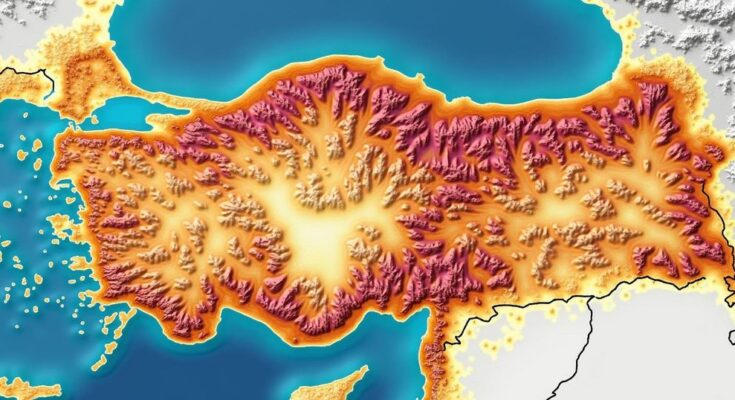A 6.1 magnitude earthquake has impacted eastern Turkey, with assessments underway to understand the full extent of the damage. The region is prone to seismic activity, prompting urgent review of disaster preparedness.
A significant earthquake measuring 6.1 on the Richter scale struck the eastern region of Turkey, as reported by the Earthquake Monitoring Service of Europe (EMSC). This seismic event is part of a recurring pattern of tremors that affect the region, raising concerns among local populations and authorities regarding safety and preparedness. The earthquake’s depth and exact impact on infrastructure and civilian life are still being assessed, with rescue and relief teams poised to respond as needed. The Turkish Disaster and Emergency Management Authority is currently evaluating the situation to provide necessary support and ensure the welfare of affected individuals.
Turkey is located within one of the most seismically active regions in the world, experiencing frequent earthquakes due to its position on the complex tectonic boundaries between the Eurasian, Arabian, and African plates. The eastern provinces are particularly vulnerable to seismic events, which can lead to significant loss of life and property if not managed effectively. The responses to such disasters are critical for mitigating risks and facilitating recovery efforts. Previous earthquakes in the area have highlighted the importance of disaster preparedness and building resilience against potential future shocks.
In summary, the 6.1 magnitude earthquake that struck eastern Turkey underscores the ongoing seismic risks that the nation faces. As authorities continue to assess the situation, the focus will likely be on providing immediate relief to affected areas while reinforcing the need for comprehensive disaster preparedness measures.
Original Source: www.usnews.com




